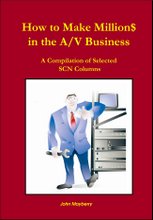
Jack Odell, creator of Matchbox and Lledo models, diesBefore there was a “die-cast collectibles” market, before there were certificates of authenticity and serial numbers and all manner of marketing gimmickry. Before there was a Jada, a Johnny Lightning, or a Hot Wheels, there was Matchbox—a brand that lit millions of kid-sized imaginations worldwide, a name that turned generations of kids into car enthusiasts. How many of us remember driving down fantasy highways for destinations unknown, putting ourselves behind the wheel of a Matchbox car? How many of us used toy cars as an entry into the greater automotive hobby—real cars or otherwise? How many of us learned about cars from around the world, just from our toy collections? If you grew up from the late ’50s to mid-to-late ’60s, Matchbox was the toy car of choice. There would have been no Matchbox without Jack Odell.
Born in London in 1920, Odell was kicked out of school at age 13 and was never formally trained as an engineer. Even so, mechanics and tinkering helped him scrape up a living, but it wasn’t until 1947 that he joined Lesley and Rodney Smith (unrelated to each other) at Lesney, a die-casting facility. He quickly got up to speed on the process and shortly he paid the Smiths two pounds a week rent for space. In 1950, the school that Odell’s daughter attended forbade toys any larger than a box of matches, so he handcrafted a brass steamroller for her. Thus, the idea was born. Odell tooled up for a toy state coach as early as 1950, but zinc restrictions during the Korean War kept it under wraps; the unsteady business caused Rodney Smith to leave in ’51. But by ’52 the restrictions were lifted, and painted gold it became the Coronation Coach, released in time for Queen Elizabeth II’s rise to the throne. This was the company’s initial die-cast hit, selling a million copies and allowing for the tooling for the Matchbox line. And Matchbox took off: They were big enough for little fingers but small enough that kids couldn’t choke on them. And they were cheap—kids could buy one for pocket money. Odell worked from manufacturers’ blueprints and photos for each new model. He was deeply proud of the fact that machine tools were the only equipment he hadn’t made in the factory. The company went public in 1960, making a million cars a week, and by 1964, Matchbox made a million cars a day. (He famously told The New York Times in 1962, “We make more Rolls-Royces in a day than the Rolls-Royce company has made in its entire history.”
This, plus an aggressive new-model program (two new vehicles a month), meant that at their 1960s peak, more than 300 million cars per year were sold in 140 countries around the world, with two million a week sold in the U.S. alone. He was very much involved in the factory goings-on, preferring to be on the factory floor and eat lunch in the cafeteria than disappear into an ivory tower. Odell was made an OBE in 1969. The company employed more than 6,000 workers in a dozen factories across London, and threw a scare into the Meccano (Dinky) group in Liverpool, whose cars were larger and a good deal more expensive.
In turn, Mattel’s fast-rolling upstart, Hot Wheels, had made a splash on the American market in the late ’60s; Matchbox responded with the Superfast line, but even so, the ’70s weren’t kind to the vaunted die-cast brand, and in 1982, the company was sold to the Universal company, based in the Far East. In 1993, they were bought by Tyco, which was absorbed by Mattel a decade ago.
Odell, meanwhile, bought all of the machine-room tools from the new owners, and started the Lledo line (Lledo is Odell spelled backwards) which concentrated on larger-scale pre-war era commercial vehicles in its “Days Gone By” series, with colorful vintage ads from all manner of commercial goods on the side. He sold this second company in 1996. Odell died July 7 of complications from Parkinson’s; he was 87. - By Jeff Koch

